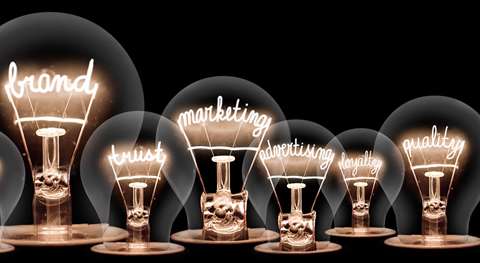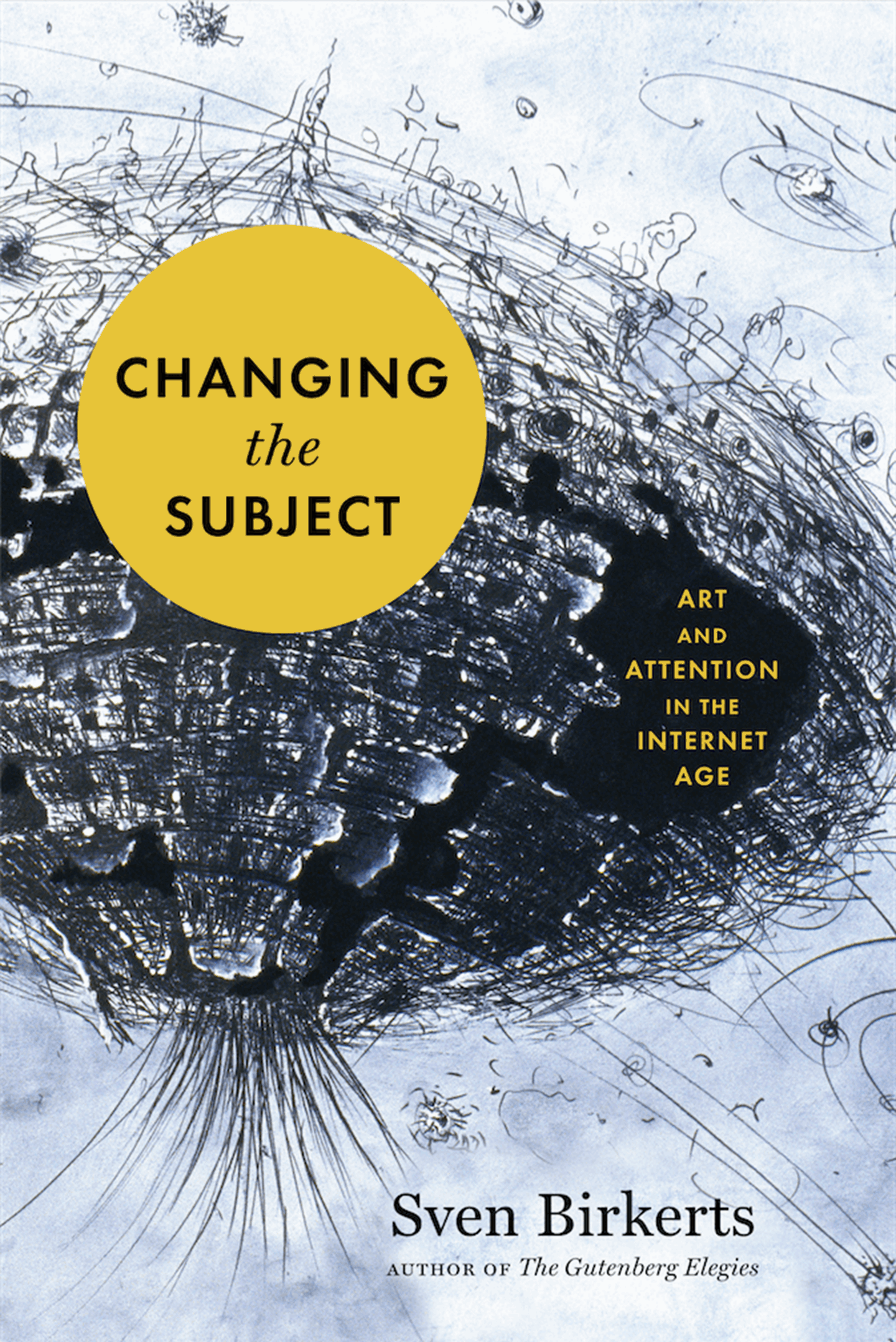The power of print at a glance
- Take inspiration from older technology predicated on intense, private concentration
- Print is less of a legacy tech than an attention machine – a killer app
- Marketing ideas of the future will pull people to one place, not many
It’s not often that the thesis of a book proves itself to you while you’re in the act of reading it. I experienced just such a jolt in the middle of Changing the Subject: Art and Attention in the Internet Age by the American critic and writer Sven Birkerts, who in 1994 forecast the doom of conventional reading at the hands of digital technology in his celebrated essay collection The Gutenberg Elegies.
Changing the Subject brings the thesis of Elegies 20 years forward into our present, fully digital world. Today, constantly networked and nagged by tweets, Facebook updates, news alerts and texts, we no longer find our attention directed by a narrative author-creator, as we were in the discrete environment of the book.
Constant diversion is literally rewiring our brains, Birkerts argues, forging new neural pathways better suited to the immediate and the trivial. We are becoming different people with different minds. The book’s title is apt: we are those very subjects that digital media is changing. For different reasons, this disunited mind is an existential challenge to authors, creatives and marketers alike.
And as I read this, I kept thinking: I wonder what’s in the news? Do I have any mail? Should I check eBay? I am that same screen-besieged individual that Birkerts identified. Now I was being distracted from reading about how digital media destroys concentration… by the same digital media that destroys concentration.
“There is almost a species-level change happening right now,” Birkerts explains on the phone from Boston, where he edits the literary magazine AGNI. “We are moving from the space-and-time-bound individual to a state where most of us live online in near-constant engagement with many, many other members of our tribe. It’s not surprising that after spending nine hours a day in constant contact with many, many streams of communication, it’s then difficult for someone to flip the switch and settle down with Pride and Prejudice.”
Refining your scattered sensory apparatus
The paradox for marketers, who are in the business of grabbing consumers’ attention, is clear and disquieting. Of that flock of messages which insist upon consumers’ attention yet degrade and destroy it, many are themselves marketing communications: tweets, ads, Instas, alerts and updates of every kind.
The harder marketers try to secure undivided attention via digital channels alone, the more they erode the target audience’s ability to assimilate – or care about – those same messages. In which case, perhaps the industry should take inspiration from older technology predicated not on mass volume and shallow connection but on intense, private concentration.
“The book experience is a particular channelling of the attention,” Birkerts explains. “It almost doesn’t matter what the object of your attention is, whether it’s the life-cycle of a plant or George Orwell. The point is that your scattered sensory apparatus is refined down to a point. You are self-consistent, whereas the digital environment is premised on multiplicity and distraction.”
Print as the pop-up of the engaged mind
Birkerts’ concern is for the survival of introspection and focus for writers and readers alike. But there are lessons here for marketers too.
Is it wise to create ever-noisier, multi-platform campaigns — they may share but do they care? — when there are opportunities to create deeper relationships with consumers and influencers through activities whose benefit is the exclusion of an intrusive, shallow outside world? Find a quiet place to talk to people as individuals and you will find that one engaged consumer is worth many uninvested digital grazers.
And if the food, drink and luxury industries have learned the value of the one-off, pop-up experience, why can’t knowledge-based brands find their own spin in print? Could limited-run, brand-curated print products — monographs; innovative fiction or criticism that uses brand support to bypass market barriers; unique, beyond-luxury formats; imagine a novel which exists in only ten copies — be the pop-up of the engaged mind?
Birkerts himself is alive to the liberating sensations of the long-form work that doesn’t try to distract you from itself. “There’s a subjective difference between reading something I know to be dead-ended on paper with reading on a screen, even an unconnected screen,” he says. “There’s a satisfying deceleration when I pick up something that’s not going to do anything.”
The death of empty distraction
Does Birkerts take heart from the fact that it often turns out that people don’t actually want the latest exciting digital innovation? The smart-eyewear device Google Glass flopped and, judging by the reported underwhelming sales of Apple’s iPhone X, we may even have reached peak smartphone. Meanwhile, e-book sales are falling in the UK, down 1% to £337m in 2017 according to Mintel, while the same data predicted that physical books would be up 6% to £1.7bn in the same period. Is it possible that empty distraction won’t be the winner that takes all?
“It’s cheering in the sense that it shows we’re not just endlessly manipulable,” Birkerts says. “But while Google Glass might have faded, everywhere I look I see secondary versions of that idea, from robotics to AI to Siri. We haven’t defeated the idea of technology that will cater to every whim.”
The responsive, narrative-free internet which enervates its users while pretending to serve them is – as Birkerts once wrote – the philosophical opposite of a book. And possibly why we need the printed page more than ever.
Viewed from this angle, print media is less of a legacy technology and more of a killer app: the attention machine, the concentration magnet, the exemplar of how to deal with hard-to-reach minds.
“A book in its nature is centripedal,” says Birkerts. “It pulls you to one place, whereas digital media is centrifugal, it won’t stay in one place. When you’re engaged with digital you know you’re in a mercurial medium that is going to move you around to its own ends.” And not everyone wants that. As with books, the marketing ideas of the future will need to pull consumers to one place, not many.
By Andrew Harrison
Andrew has written for The Guardian, New Statesman, Google and The Observer. He is the former editor-in-chief of renowned rock monthly Q, a contributing editor to Esquire, the co-founder and presenter of the pop-culture podcast Bigmouth, and an experienced brand consultant.
* Changing the Subject: Art and Attention in the Internet Age is published by Graywolf Press.


